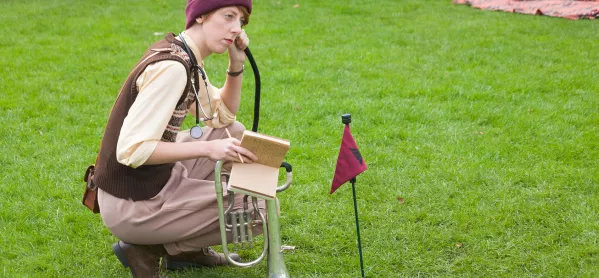As teachers, we cannot stress enough just how important it is that you listen.
Whether it’s “Pens down, mouths closed, eyes on me” in Year 2; tracking with Year 6; or an array of silent but deadly non-verbals preserved specifically for that Year 9 set who will not interrupt you mid-flow again.
Simply put, if they’re not listening, they’re not learning. Or understanding. Or empathising. Or progressing.
Quick read: Empathy is in short supply these days. Here’s how to nurture it
Quick listen: How much of your lesson should be teacher talk?
Want to know more? ‘Listen to pupil voice - your school will be better for it’
But does it go any deeper than that, than a student either listening or not listening?
Do you ever consider how they’re listening? And what about how you are listening yourself?
According to sound and communication expert Julian Treasure, loss of attention isn’t the only barrier to real listening and understanding; sometimes, it’s the way that we’re listening that affects how information is filtered and perceived.
Picture yourself listening in these situations: getting important news from a family member, being trained in a new initiative at Inset, hearing a student’s excuse for why their homework hasn’t been done.
As the listener in these situations, we switch our listening positions, just as a photographer changes angles to capture an image from another perspective.
Treasure argues that building an awareness of how you’re listening can be incredibly beneficial; not least of all because it counteracts the common (and unhelpful) habit of listening from the same place, all of the time.
Here’s a summary of Julian Treasure’s listening positions. Think about where you stand.
Active listening
This is essentially about hearing and repeating what’s said and showing that you’ve been paying attention. Many of us will have used it in class, asking students to repeat what their partner said after a discussion task.
However, it’s equally powerful when listening to students, colleagues, family and friends, giving them a sense that they’ve really been heard, that you’re not just waiting for your turn to speak, or worse, reading an email as they do so.
Passive listening
Noticing the qualities and features of sounds, without meaning or interpretation, can be a welcome break from the attention-pulling noise of day-to-day school life. It’s also a helpful alternative to non-listening, whereby you’re mulling over a long list of anxiety-provoking thoughts.
Critical listening
Is that right or wrong? Do I agree or disagree? Is this person’s opinion reliable or not? We frequently listen from this critical position as teachers - when we’re teaching, marking, assessing, discussing and deciding - and it’s extremely useful.
Just beware of using this position too often and becoming a judgemental cynic who tuts and eye-rolls through births, deaths and staff promotions.
Empathetic listening
Simply, this is listening to someone without judgement, without immediately relating it to your own story or trying to make things better. It’s being with them in that place of vulnerability - this is how we create real human connection and understanding.
And it’s this place that you need to listen from when a colleague tells you that they’re struggling (rather than the critical position, which hears, “but he/she doesn’t do half of what I do!” or, “at least you haven’t got X, Y and Z, like me!”).
My advice is to bring a little more awareness to how you’re listening.
And if you don’t like what you’re hearing, consider a change of position, before you stop listening altogether.
Jo Steer is a teacher and experienced leader of SEND interventions






